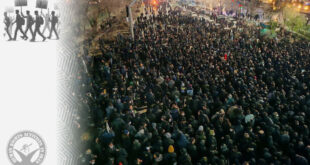Croatian politicians have reacted sharply to the Slovenian foreign minister’s suggestion that Zagreb risks missing out on EU membership.Politicians hit back at foreign minister Karl Erjavec’s warning on Friday that “Croatia might never join the EU” if the Slovenian parliament doesn’t ratify the Croatian accession agreement before July 1 this year, when the country is due to gain membership.
Vojko Obersnel, mayor of the third largest Croatian city, Rijeka, and an influential politician from the ruling Social Democratic Party, took to Twitter on Saturday to vent his fury, threatening that Slovenian tourists could be banned from coming to Croatia.
“Croatia maybe wouldn’t join the EU, but neither would Slovenians come to the Adriatic,” Obersnel wrote on Twitter.
Obersnel’s comment led the Slovenian embassy in Zagreb to try to calm the row, insisting on Saturday that “Erjavec didn’t threaten that Croatia wouldn’t enter the EU”.
“On the contrary, Erjavec is worried that Croatia, because of the political situation in Slovenia, could not enter EU on the July 1,” the embassy said in the statement.
“The so-called threats by minister Erjavec are media interpretations,” the embassy said, adding that “minister Erjavec explained he would do everything to find a solution”.
The Slovenian parliament’s ratification of the Croatian accession agreement has been blocked because of an unresolved mutual dispute about a bank that was liquidated after Yugoslavia dissolved.
The row over Croatian citizens who lost their lost their savings in the former Ljubljanska Banka has dogged relations between Zagreb and Ljubljana for two decades.
Slovenia has warned that it could block ratification of Croatia’s accession if the dispute is not resolved by July 1, 2013.
After the Slovenian embassy issued its statement, Obersnel returned to Twitter to issue a partial apology. “I personally apologise to all who found themselves offended by my tweet, except minister Erjavec and those who support his views,” Obersnel wrote.
The Ljubljanska Banka dispute intensified last week after the Slovenian ruling coalition ran into problems, raising the possibility of early elections.
If the Slovenian parliament dissolves because of the elections, it will not be able to ratify the Croatian accession agreement on time, and Zagreb might not be able to join on July 1.
A Croatian-Slovenian expert group is to meet on January 29 in an attempt to solve the problem, in what could be the last opportunity for an agreement.
If the experts agree on a solution, both governments have to accept it.
If that happened, enough time would remain to solve the problem for Slovenia to ratify Croatian EU accession.
Twenty EU member states have ratified Croatia’s accession agreement so far, with Slovenia the only one not to even have started the parliamentary procedure for ratification.
 Eurasia Press & News
Eurasia Press & News


